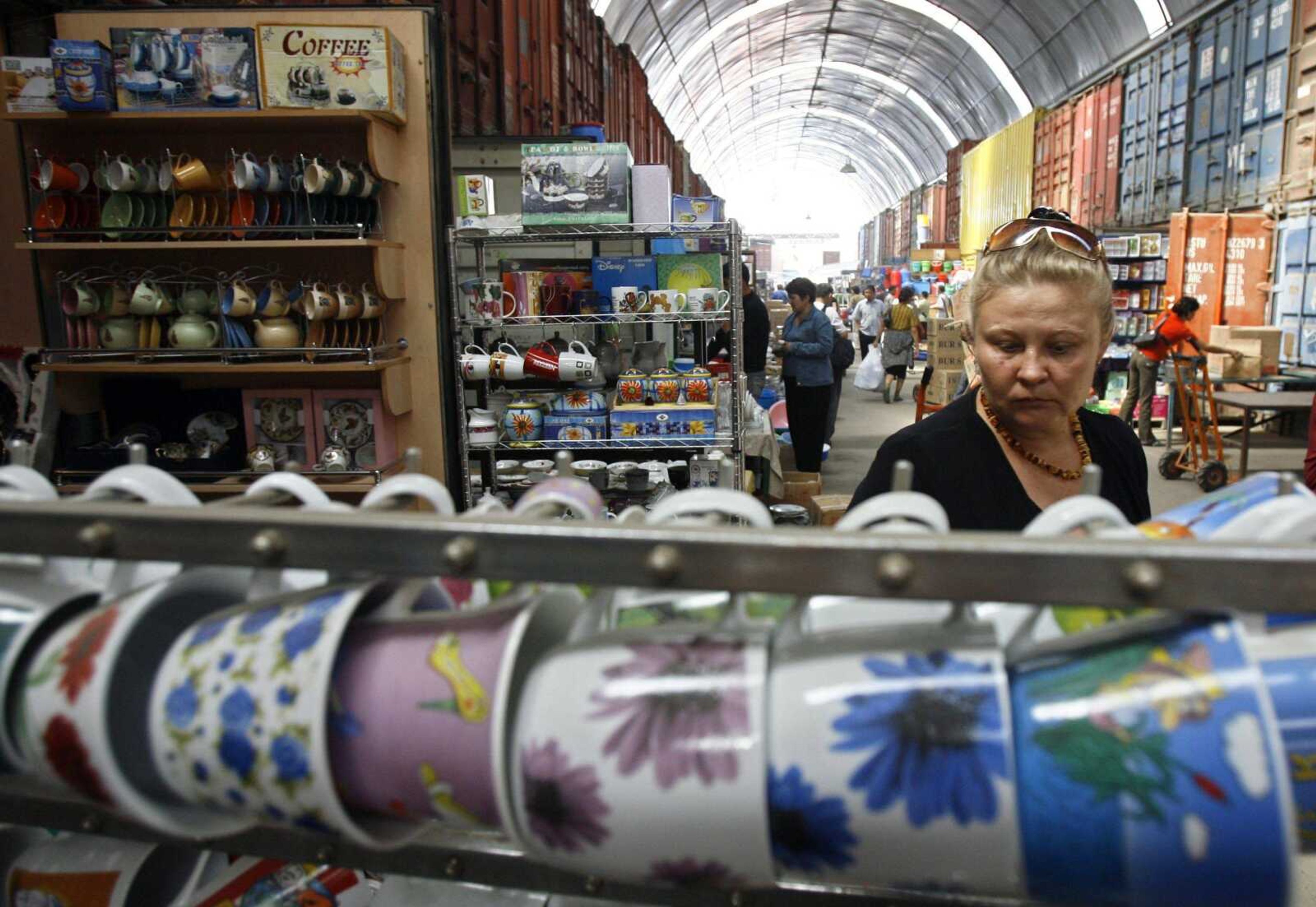China in fight over Central Asian riches
KHORGOS, Kazakhstan -- The driver of the 18-wheel tractor-trailer from China idling at the Kazakhstan-China border said apples were the cargo he brought to Almaty, Kazakhstan's booming commercial center. For Kazakhs, there's a tart irony in the shipment...
KHORGOS, Kazakhstan -- The driver of the 18-wheel tractor-trailer from China idling at the Kazakhstan-China border said apples were the cargo he brought to Almaty, Kazakhstan's booming commercial center.
For Kazakhs, there's a tart irony in the shipment.
Almaty's region is where the first apple trees were found and the first apple orchards planted. The city was a center of the Soviet Union's fruit industry.
In the past few years, Chinese fruit, vegetables, TV sets, T-shirts and tires have flooded markets along the old Silk Road in former Soviet Central Asia. Each day, all along the Chinese border, hundreds of tractor-trailers rattle west.
These goods are the most visible sign of Beijing's growing power here as China, Russia, the United States and others compete for financial and strategic advantage on the borders of some of the world's most turbulent countries -- Iran, Afghanistan and Pakistan.

China's growing role
It's a struggle in which China seems to be gaining the upper hand.
At stake are oil, hydropower sources, strategic metals, pipelines, transit routes and access to markets. The chief prize is energy supplies: China needs them, Russia wants to control their distribution, and Western powers want to ensure they are not monopolized by Moscow or Beijing.
China today is reaching deep into Central Asia to tap oil and gas reserves, using pipelines and investments to challenge Russia's monopoly on gas shipments and to thwart Moscow's hopes of controlling a bigger share of the region's oil.
In recent years, China and Russia have forged a strategic alliance, as part of a group called the Shanghai Cooperation Organization, to squeeze the United States out of Central Asia, after the U.S. established military bases here. They have largely succeeded.

However, friction is developing between the two neighboring giants. And given China's 1.3 billion people and its economic strength, it seems certain that Russia, with its dwindling population and economy based narrowly on energy, will increasingly be on the defensive.
Russian erosion
Today, Russia finds itself struggling to shore up its influence through arms sales and energy contracts, dominance of mobile phone and TV networks, and shared language and culture -- as well as the Kremlin's pledges of billions in fresh investment.
Above all, Moscow wants to preserve its monopoly on distributing Central Asian gas and its major role in other energy sectors. To this end, President Vladimir Putin proposed at an October regional summit in Tehran that all the Caspian Sea states have a veto on any new pipelines crossing the sea bed -- apparently so Moscow can block plans to connect Kazakhstan's and Turkmenistan's rich oil and gas fields to the west, bypassing Russia.
But Moscow's dominance of the region's energy reserves is eroding. Despite Russian pressure, both Kazakhstan and Turkmenistan have welcomed discussion of a trans-Caspian pipeline -- and Putin's proposal was met with silence.
China has been moving in quietly and steadily since the mid 1990s, when trucks loaded up on scrap iron, steel and copper at derelict Soviet factories and carted the metals back to China for recycling.
In the 1990s, China did relatively little trade with Kazakhstan -- Central Asia's economic motor, an oil- and gas-rich nation of 15.2 million larger than Western Europe. But by 2006, China ranked third behind Germany and Russia in Kazakhstan's $35.6 billion export market and second after Russia in the nation's $22 billion import market.
Growing apart
Former prime minister Almazbek Atambayev of Kyrgyzstan said the bonds between Russia and the other former Soviet states remain strong. "In many ways, it's like the relation between the United States and Great Britain," he said.
But powerful forces are driving them apart.
All Central Asian nations are promoting their native languages at the expense of Russian, once the lingua franca here. The region used to share Moscow's secular faith in Marxism. Now, Russia is rediscovering its Orthodox Christian roots as Central Asia is gripped by a Muslim revival.
Russian popular culture is still entrenched here. But today's Silk Road markets, reborn as warrens of metal shipping containers, sell movies from Hong Kong and American pop music. Radio disc jockeys speak in a polyglot of Russian, English and their native languages.
China so far has filled only part of this vacuum.
Central Asian leaders say the challenge for them is the same as in the past -- to benefit from the competition while ensuring none of the players becomes dominant.
"We will retain our independence," Atambayev said, "only if we maintain equally friendly relations with all the countries around us, and not be subdued by one of the powers around us."
Connect with the Southeast Missourian Newsroom:
For corrections to this story or other insights for the editor, click here. To submit a letter to the editor, click here. To learn about the Southeast Missourian’s AI Policy, click here.









